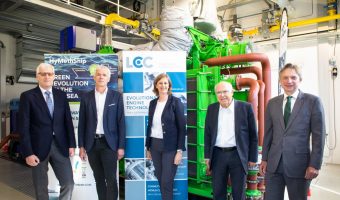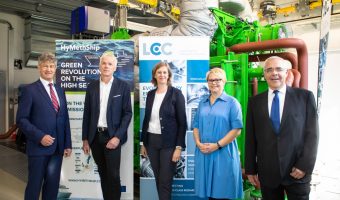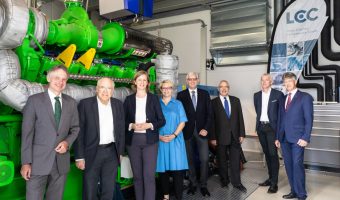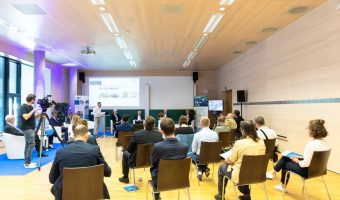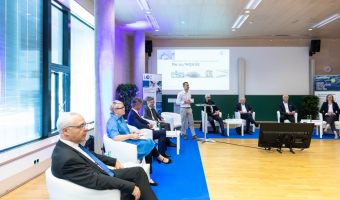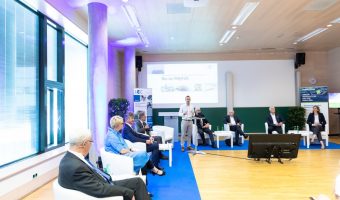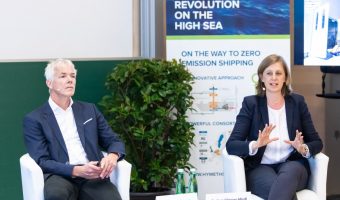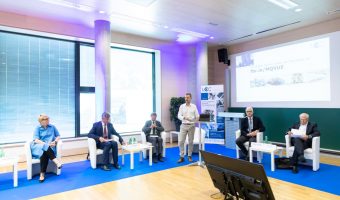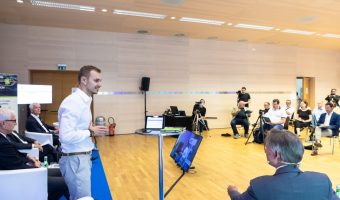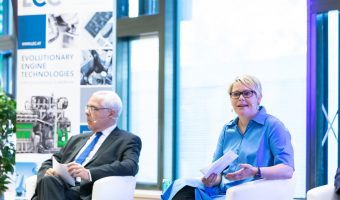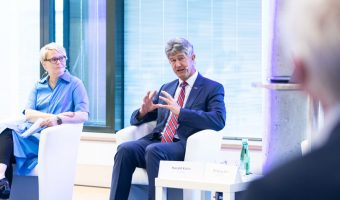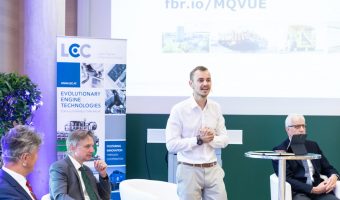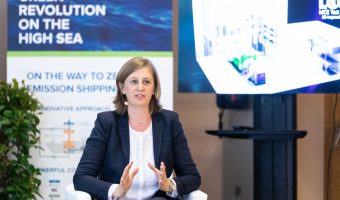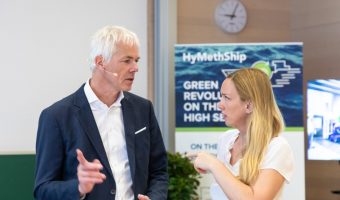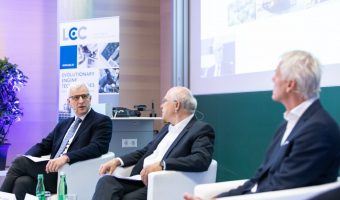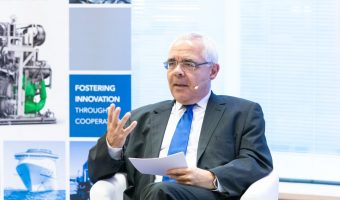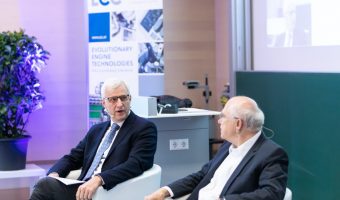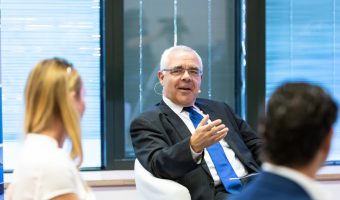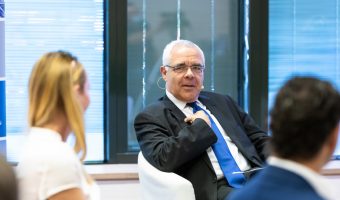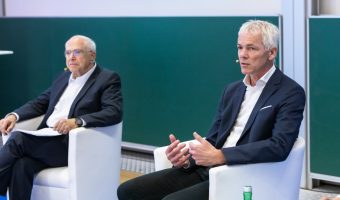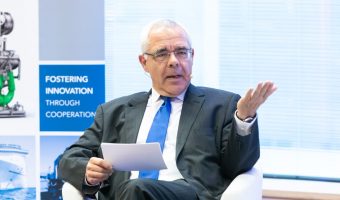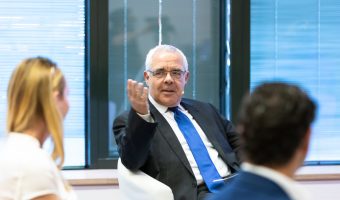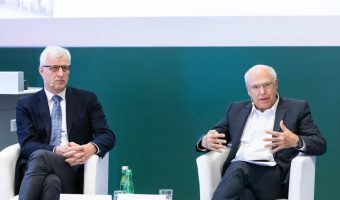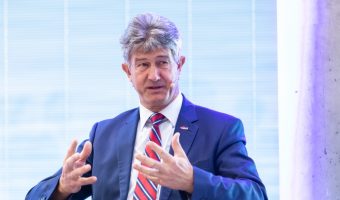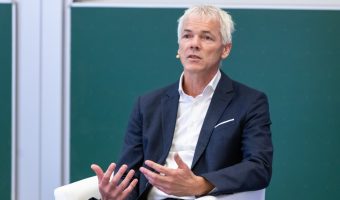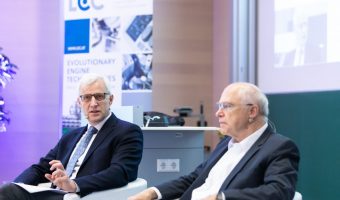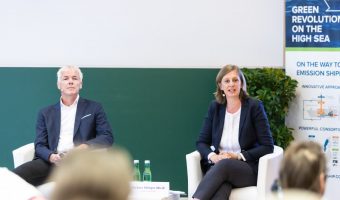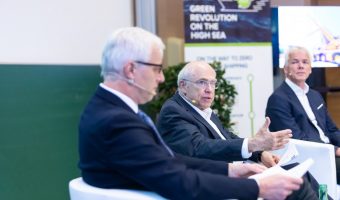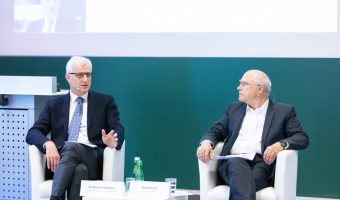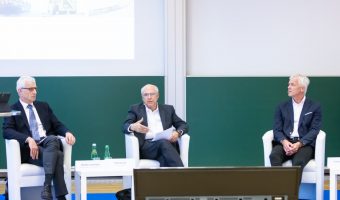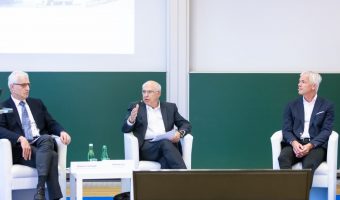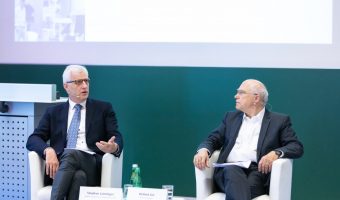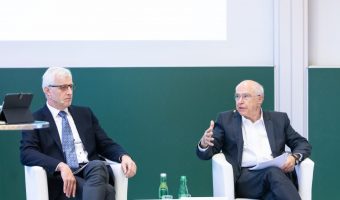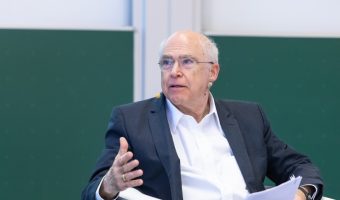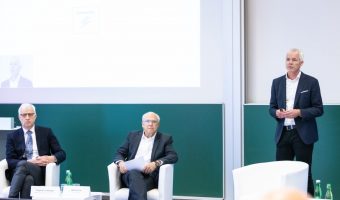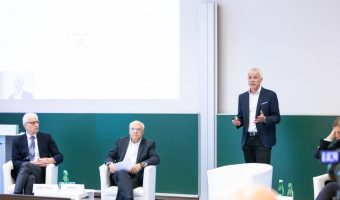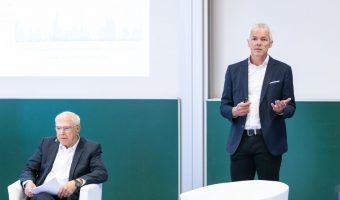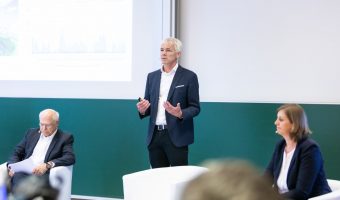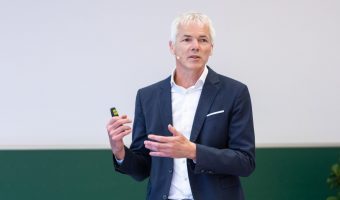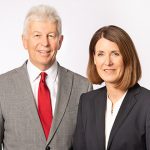Reaching Global Climate Goals with „Green“ Large Engines
Reaching Global Climate Goals with „Green“ Large Engines
LEC Press Conference on Wednesday, the 8th of July, at 9.00 am with highly distinguished speakers:
Barbara Eibinger-Miedl, Styrian Secretary of Economy, Tourism, Science, and Research
Prof. Andreas Wimmer, CEO und Scientific Director LEC
Prof. Helmut List, CEO AVL
Stephan Laiminger, Chief Technologist INNIO Jenbacher
Wolfgang Pell, Chief Research Officer Verbund
Prof. Harald Kainz, Rector of the Graz University of Technology
Silvia Laimgruber, Division Manager for Structural Programmes FFG
Christian Weissenburger, Federal Ministry of Climate Action, Environment, Energy, Mobility, Innovation and Technology, Section Leader “Innovation and Technology”
Download : Press Information LEC_PA_20200708_Research for Climate Goals (PDF)
Download: Press Pictures (ZIP File, 8.5MB) © LEC GmbH, Fotograph Jorj Konstantinov
Download: Press Conference Presentation (PDF, German)
Publication of pictures and graphics permitted with copyright declaration © LEC GmbH
Keeping global warming well under 2° Celsius, limiting the temperature rise to 1,5° Celsius and a radical reduction of greenhouse gas emissions by 40% by 2030 and 100% by 2050; the goals of the “Paris Agreement” are aimed at counteracting the dangerous change of the climate. Nevertheless, current developments contradict the climate protection agreement. According to the World Energy Outlook (WEO) the global demand for electricity is expected to rise by up to 58 percent by 2040 alone and the global freight volume will triple by 2050 according to an OECD study, increasing CO2 emissions by 160 percent. These developments make the call for climate-friendly solutions louder than ever. Austria, which has committed itself to climate neutrality by 2040, will provide central innovative impulses to achieve the global climate targets. The Large Engines Competence Center (LEC) is particularly responsible for this: The internationally renowned large engines research facility has committed itself to visionary concepts for sustainable energy and transportation systems, pioneering new solutions for drastic emission reductions.
Styrian Large Engine Research for Drastic Emission Reduction
The Styrian Secretary of Economy and Science Barabara Eibinger-Miedl accentuates: “Styria can do two things above all to stop global climate change: developing technology and solutions in order to operate in a more sustainable, resource-saving and climate-neutral manner and secondly shape our federal state in such a way that preserves our intact living environment. Economy, science, and climate protection are not mutually exclusive in Styria; they cooperate successfully under the focus of sustainability. We want to intensify these efforts in the future. The LEC holds an international role as a driving force for climate-friendly innovations.“
On the Fast Lane with Hydrogen and Other E-Fuels
Andreas Wimmer, CEO of the LEC, emphasizes, that in connection with “green” technologies, so called “E-Fuels” in particular play an important role. “We see a large potential in hydrogen and the fuels derived from it for use in large engines, because these e-fuels enable energy-generation completely free of CO2 when renewable energy is used. In addition, good storability and transportability can be guaranteed when using liquid E-Fuels such as methanol, ammonia, or Fischer-Tropsch-fuels. This creates the basis for a reduced infrastructure expenditure.” The challenge concerning E-Fuels is to provide the CO2-free energy required for their production at a reasonable cost.
Research Beacon: Power Plant of the Future
In order to facilitate the expansion of the renewable energies required for this, an international lighthouse project is being built in Mellach, Styria: A two million euro COMET research project at the LEC is the basis for producing and supplying hydrogen in the required quantities as well as for reconverting it to electricity in a highly flexible way. This project will be carried out at the power plant in Mellach, which was developed into a center for technology and innovation.
„As a result, hydrogen-based applications can also be operated at industrial power levels in the megawatt range.“ Wolfgang Pell, research director of Verbund, Austria’s largest energy provider, further explains: „At the power plant site Mellach – centrally located with excellent rail, network and road connections – we work together with our partners LEC, INNIO and the University of Technology Graz in the “Real-World Laboratory” of the power plant on future-oriented innovation projects.”
The long-established company INNIO in Tyrol (formerly known as GE Jenbacher) supplies the innovative hydrogen engines. Stephan Laiminger, Chief Technologist at INNIO explains: “We are pursuing the approach of burning 100 % regenerative hydrogen, which is obtained by electrolysis using water power that is currently not needed. The combustion concept for the engines is being developed jointly with the LEC. With their fuel flexibility, INNIO’s gas engines offer the best conditions for achieving climate-relevant results.”
Until 2022 at the latest the first expansion stage of the hydrogen technology center, which will service application between one and five megawatt, will be realized. In addition, the innovation and technology center for hydrogen in Mellach will profit from the LEC’s unique research infrastructure.
LEC High-Tech Infrastructure as a Foundation for Research
One of Austria’s most innovative engine test beds is currently operated at the research facility in Graz. This newly created infrastructure is also applied to the innovation project “HyMethShip”, which aims to drastically reduce greenhouse gas emissions in the naval segment. The highly flexible LEC test bed with new INNIO engines is equipped with expansive and highly specific measuring technology by the local company AVL, which also recognized the high potential of E-Fuels.
AVL CEO Helmut List states: “Synthetically produced fuels will gain importance, because they make CO2-free mobility, covering long distances, and short refuelling times possible. It has been shown, that joint research and innovation – for example with the LEC – is once again the most important key in the fight against climate change.”
In Harmony with Austria’s Climate and Hydrogen Strategy
Harald Kainz, Rector of the University of Technology Graz, emphasizes the global appeal of the research activities: “The joint development of the power plant in Mellach into a technology and innovation centre emphasizes the close link between research and the economy. The LEC and University of Technology Graz contribute a high level of internationally recognised research expertise in the field of renewable energies in order to make a significant contribution to reducing emissions and increasing efficiency.”
For Henrietta Egerth and Klaus Pseiner, Managing Directors of the Research Promotion Agency FFG, the current developments are confirmation of the sustained success of the top research programme COMET, which makes research at the LEC possible: “Comet-Centres, such as the LEC, one of the world’s leading research institutes for large engine technologies, are of great importance. They give Austria a pioneering role when it comes to sustainably advancing development in climate-friendly future technologies and securing as well as creating jobs in the long term.”
“This is because the cooperation between companies and researchers in COMET projects and centers makes it possible to bring new developments to market more quickly and to make an important contribution to achieving global climate goals.” Christian Weissenburger, head of the “Innovation and Technology” section in the Ministry of Climate Protection, adds: “Ambitious research topics are being established and new fields of strength are being developed in order to prepare Austria as a business location for future challenges, especially in the field of environmental and climate protection. The research activities of the LEC make an important contribution to the goal of the government programme to make Austria climate-neutral by 2040. As many environmental problems are of a global nature or are related to the cross-border effects of economic globalisation, international cooperation is indispensable. Here, too, the LEC with its worldwide network plays an important role”.
About the LEC GmbH
The Large Engines Competence Center, LEC for short, is one of the world’s leading research institutions for large engine technologies and develops innovative solutions for sustainable energy and transport systems. Roughly 70 people are currently employed at the LEC, 18% of which are women, an above average proportion for the industry.
With its research, the LEC contributes significantly to massive emission reductions and efficiency increases and thus to the achievement of global climate targets. The research focus of the COMET K1 Centre LEC EvoLET – as part of LEC GmbH – is on the optimisation of the overall system, the use of renewable energies and the integration and further development of new digital technologies. With the COMET module LEC HybTec, the research focus is even more intensively placed on the integration of AI & Big Data methods in order to map phenomena that have not been modelled so far. For this purpose, the LEC has a worldwide unique test bench infrastructure with single-cylinder research engines on the campus of Graz University of Technology. The partner consortium includes major technology leaders in the field of innovative engine technologies, including many world market leaders. This international partner network, the COMET research program of the Austrian research promotion agency FFG and the unique infrastructure provide the ideal framework conditions for developing tailor-made solutions for industry and promoting innovation. The LEC offers excellent perspectives to interested researchers. Owner representatives are the companies INNIO Jenbacher and HOERBIGER as well as the Graz University of Technology and the University of Leoben. The COMET Center is funded by the Federal Ministry for Climate Protection, Environment, Energy, Mobility, Innovation and Technology (BMK) and the Federal Ministry for Digitalization and Business Location (BMDW) as well as the federal states of Styria, Tyrol and Vienna.
For further information visit www.lec.at
Contact:
LEC GmbH • Large Engines Competence Center
Nina Simon | Phone: +43-664-426 40 40 | Email: nina.simon@lec.tugraz.at

